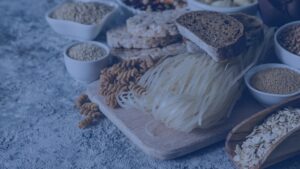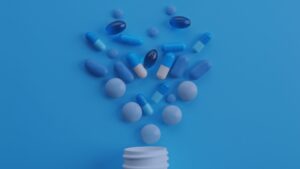
Fuelling Your Success: The Importance of a Sports Nutritionist in Maximising GAA Performance
Aine Breen & Daniel Murphy // Sports Nutritionist & Dietician, Cork // Feb 24
Do you want to reach the peak of your athletic performance? Look no further than a sports nutritionist at Apex Nutrition. In the competitive world of sports, fueling your body with the right nutrients can make all the difference. That’s where a sports nutritionist comes in. The demands and expectations to perform in both Hurling and Football is becoming the norm, more particularly in that of inter-county players. The training load players undertake each week suggests there is a need for appropriate nutrition strategies to be put in place for player to optimise health, performance and body composition. While putting players in a position to avoid illness, injury, poor adaptation to training, low energy, low performance. In this article we discuss advise on pre- and post-workout nutrition, helping you optimise energy levels and enhance muscle repair for GAA. So let’s elevate your game and fuel your success.
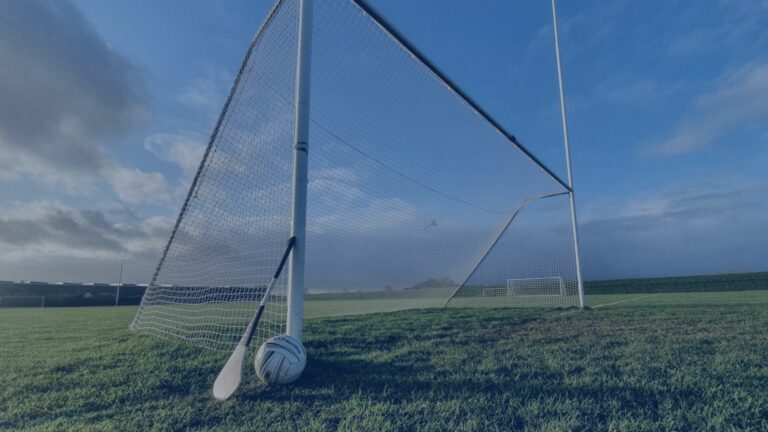
Understanding macronutrients and their impact on athletic performance
Macronutrients, which include carbohydrates, protein, and fat, are the foundation of an athlete’s diet. Each macronutrient plays a unique role in fuelling GAA performance and supporting optimal recovery. Understanding the impact of macronutrients can help athletes make informed choices about their nutrition. Work out your own calories and macros using the Apex Calorie Calculator.
- Carbohydrates: As mentioned, each players needs will be different depending on various factors. When it comes to fuelling, carbs are your body’s preferred source of energy. Especially for high intensity exercise that GAA players participate in week to week! The Carbs that we consume are broken down into glucose. We store this glucose as glycogen in our liver & muscles, which is then used to provide rapid energy when we need it. Once we begin exercising these stores begin to deplete and it may be required to top up with a high carbohydrate snack especially if likely to go over the 60min mark. And like most games when warm up is included games will tend to go over this time.
- Depending on training/game days and again individual needs, carb intake can range from 3-8g/kg of bodyweight (BW). Athletes should opt for the lower end on rest days and the upper end for intense training days or when carbohydrate loading is taking place.
- Carb Sources: bread, oats, pasta, rice, cereals, potatoes, jellies, sports drinks.
- Protein is essential for muscle repair and growth. Athletes who engage in strength and power activities require higher protein intake to support muscle development. Therefore, it is required to consume adequate amounts of protein day to day for our body to adapt to training by repairing & building muscle (Poortmans et al., 2012). It is not a source of energy like carbohydrates. However, it’s definitely ok to include a smaller protein source in pre training meals to contribute to daily intake. By pairing protein & carbs in meals it has potential to further contribute to muscle repair & growth (Kerksick et al., 2017). Again, needs will vary depending on individual goals and can range from 1.4-2g/kg of BW depending. Total intake across the day is what to focus on along with a high-quality source.
- Sources: poultry, beef, turkey, eggs, dairy, tofu, Quorn, beans.
- Fat is an important source of energy, especially during long-duration activities. It provides a concentrated source of calories and helps with the absorption of fat-soluble vitamins. Athletes should aim for a moderate intake of healthy fats, such as those found in avocados, nuts, seeds, and fatty fish.
Table of Contents
Meal planning and timing for optimal GAA Performance
- Salmon & cream cheese bagel
- Beef fajitas
- Spaghetti & Meatballs
- Chips/potatoes with veg & chicken breast
- Toast/pancakes/crumpets with jam
- Oats
- Granola & yoghurt
- Rice cakes with banana & honey
During exercise, especially endurance activities lasting longer than 60 minutes, athletes should consume carbohydrates regularly to maintain energy levels. This is especially important for athlete that find it difficult to consume food before a match. A halftime snack like fruit or energy gel can top up glycogen levels to help keep you going until the final whistle.
Less than 60 mins before/ During a GAA match/ At Halftime.
- Sports drinks,
- Energy gels,
- Bananas
- Energy bars
- Dried Fruit
After exercise, athletes should focus on replenishing glycogen stores and promoting muscle recovery. Consuming a combination of carbohydrates and protein within the first 30 minutes to 1 hour after exercise can help optimise recovery (Burke et al., 2011).
Nutrition After a GAA Match or Training
- Chicken & Pasta
- Protein Milk or Protein Yogurt
- Whey Shake with milk
- Salmon and Potatoes
Proper hydration for GAA Players
Being well hydrated in training and games is certainly something that is in your control, but can be often forgotten about. It is important to note that dehydration of 2-3% can have negative effects on an individual’s performance (ACSM, 2009), and increase the perceived difficulty of training. Therefore, it is imperative to begin any session be it training or game well hydrated! Monitoring your hydration status can be as simple as looking at the colour of your urine – aiming for a clear or pale-yellow colour, this is usually a good sign you’re well hydrated! If you wish to determine how much fluid you lose during a session – weigh yourself pre & post training/game and replace weight loss by 1.5L.
e.g. If you lost 2kg during a game, this requires a replacement of around 3L of fluid.
Tips to Increase Fluids Before the Game:
- Drink tea & coffee, smoothies, soups, juices, milk, dilute, flavoured water.
- Sipping small quantities of water throughout the day. This can reduce the risk of becoming dehydrated, while allowing you to maintain regular body temperature
- Including foods with a higher water content i.e. cucumber, watermelon.
- Adding electrolytes to water. This can have benefits especially if sweating more than usual. Electrolytes perform different biological functions, in particular sodium and potassium regulate the amount of body water. Electrolytes can help maintain hydration status by replacing minerals lost in sweat.
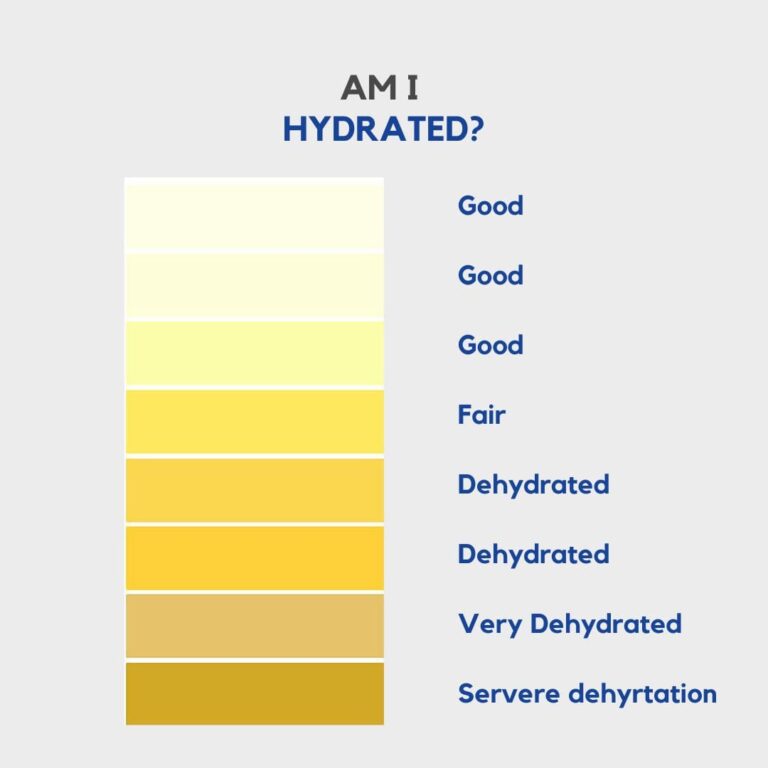
Common myths and misconceptions about sports nutrition
There are many myths and misconceptions surrounding sports nutrition and GAA. It’s important to separate fact from fiction to make informed choices about nutrition. Especially when it comes to things like protein intake for athletes. Here are a few common myths debunked:
1. Myth: High-protein diets are necessary for all athletes.
Fact: While protein is important for muscle repair and growth, most athletes can meet their protein needs through a balanced diet. Excessive protein intake can slow down performance as protein is a very poor energy source. Once you’re meeting around 1.4-2g per kg of bodyweight, the majority of the remainder of calories should come from carbs. This helps optimise energy.
2. Myth: Carbohydrates should be avoided for weight loss.
Fact: Carbohydrates are the body’s primary source of energy and are essential for athletic performance. Restricting carbohydrates can lead to fatigue and impaired performance. Longer term it tends to lead to massive sugar cravings in performance.
3. Myth: Supplements are necessary for optimal performance.
Fact: While some supplements may be beneficial for specific situations, such as creatine for strength and power athletes, most athletes can meet their nutritional needs through a balanced diet. Supplements should not be relied on as much as a balanced diet.
The role of a Sports Nutritionist in GAA
A sports nutritionist plays a crucial role in the success of GAA athletes. They are experts in understanding the nutritional needs of athletes and tailoring meal plans to meet those needs. A sports nutritionist takes into account factors such as an athlete’s sport, training intensity, body composition, and individual goals to create a personalised nutrition plan. They work closely with athletes to ensure that they are consuming the right balance of macronutrients, vitamins, and minerals to support their performance.
In addition to meal planning, a sports nutritionist also educates athletes about the importance of proper nutrition. They help athletes understand the impact of different foods on their performance and overall health. By providing guidance on portion sizes, food choices, and meal timing, a sports nutritionist empowers athletes to make informed decisions about their nutrition.
A sports nutritionist is not just a meal planner; they are also a coach and a motivator. They provide ongoing support and guidance to athletes, helping them stay on track with their nutrition goals. Whether it’s adjusting meal plans based on training demands or providing strategies for overcoming nutritional challenges, a sports nutritionist is there to ensure that athletes have the fuel they need to succeed.
Working with an Apex Nutrition Sports Nutritionist
Working with a sports nutritionist offers numerous benefits for athletes looking to maximise their performance. One of the key benefits is personalized nutrition advice. Every athlete is unique, and their nutritional needs can vary greatly depending on factors such as their sport, training goals, and body composition. A sports nutritionist takes all these factors into account and creates a customised plan that addresses the specific needs of each athlete.
Another benefit of working with a sports nutritionist is improved performance. Fuelling your body with the right nutrients can enhance energy levels, optimise muscle function, and improve recovery. By providing the right balance of macronutrients and micronutrients, a sports nutritionist helps athletes perform at their best.
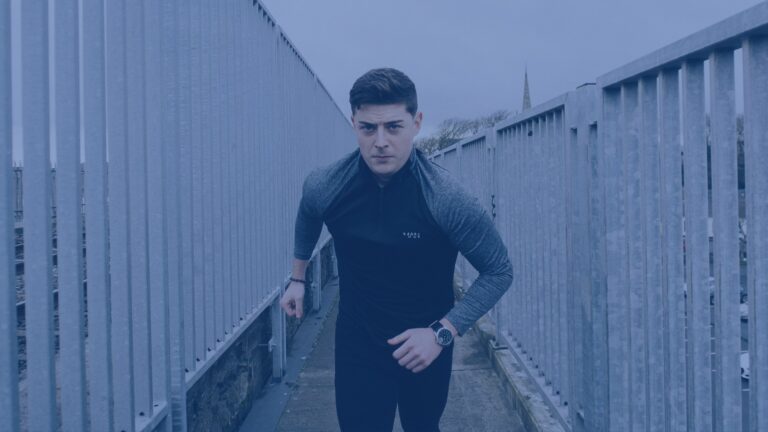
Success Stories from Apex Nutrition
Meet Jack. Jack struggled with energy during a match and also putting on muscle and size. He felt a lot smaller than some of his fellow team mates and anything he tried, he couldn’t build strength. Our sports nutritionist helped Jack put on 4.5kg of size over his program while also improving his energy in game.
Jack’s GAA Performance Story
“Honestly, before I started working with Apex Nutrition, I was seriously struggling. No matter how hard I trained, how much I practiced, I just couldn’t seem to get the results I wanted on the pitch. It was beyond frustrating. I was putting in the effort, but my body just wasn’t responding the way I needed it to.
Then, I decided to bring in a sports nutritionist from Apex Nutrition, and it was a game-changer. They completely revolutionised the way I approached my diet and supplementation, tailoring everything specifically to my needs as a GAA player. Suddenly, I had the energy I needed to train at peak performance, and I could feel myself getting stronger with each session.
One of the biggest hurdles for me was putting on muscle. No matter what I did, I just couldn’t seem to pack on the mass I needed to excel on the field. But with the guidance of my nutritionist, I was finally able to break through that barrier. They helped me dial in my protein intake, adjust my macros, and optimize my supplementation regimen. The results were incredible. I started noticing significant gains in strength and muscle mass, which translated directly into my performance on game day.
Thanks to Apex Nutrition, I’m now performing at a level I never thought possible. My game has reached new heights, and I feel stronger, faster, and more confident than ever before. Working with a sports nutritionist was the missing piece of the puzzle for me.”
